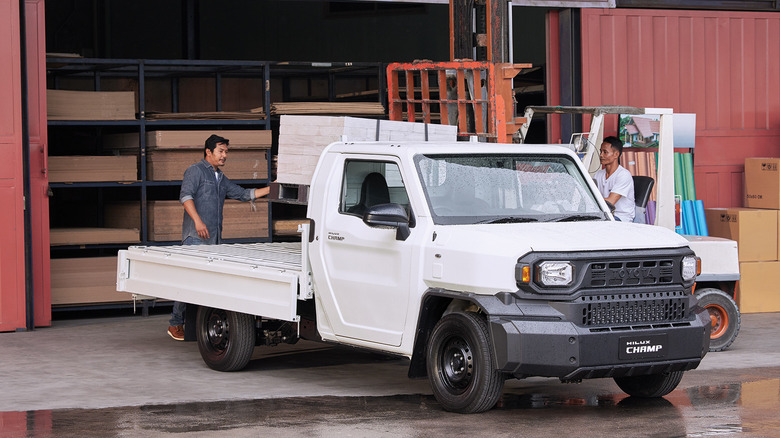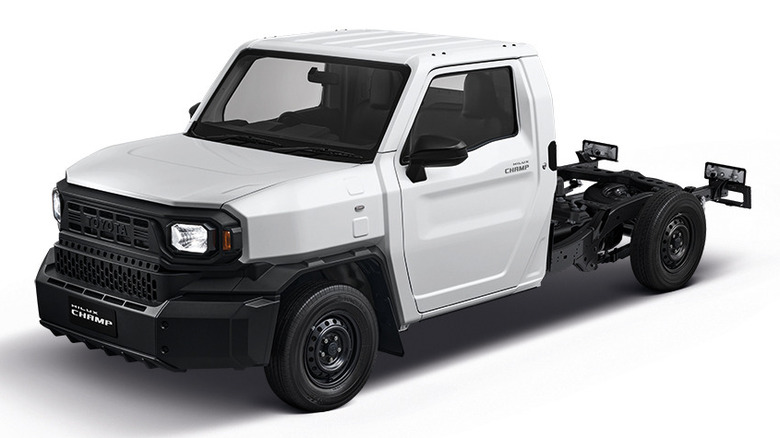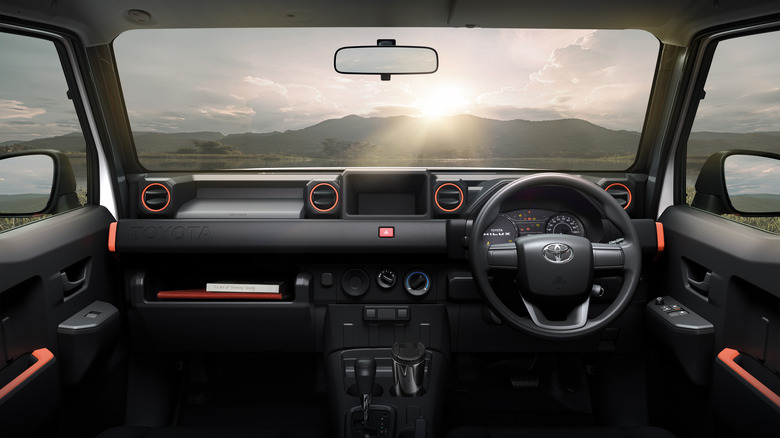The Pros And Cons Of Owning Toyota's $13,000 Pickup Truck
Japanese auto giant Toyota unveiled the Hilux Champ in Thailand as a sub-$13,000 pickup truck. Based on the IMV 0 Concept, the Hilux Champ is like a breath of fresh air in a market where new pickup truck prices have skyrocketed to about $60,000. You can buy cheap pickup trucks for under $30,000, but none comes close to the Hilux Champ's 459,000 Thai Baht base price, or about $13,000 in Uncle Sam's currency.
Toyota went the extra mile to make the Hilux Champ affordable. Unlike popular midsize trucks from GM, Ford, or Ram, the Hilux Champ is as bare as a five-figure New York apartment to reflect its commercial roots. On the corporate side, the automaker applied its highly efficient Toyota Production System from the ground up, including tier 2 and tier 3 suppliers, to optimize production costs.
Moreover, the Hilux Champ arrives at dealerships in a 70% complete production state, with the remaining 30% for the customer to figure out via custom-fit parts and accessories. It would take short of a miracle for Toyota to sell the Hilux Champ in the United States without hiking its sub-$13,000 ASEAN-based price tag. Still, it's not hard to determine the pros and cons of owning one of the coolest (and most affordable) commercial pickups for sale today.
Toyota Hilux Champ: The pros
The all-new Toyota Hilux Champ has a lot of merits to consider. Entrepreneurs and small business owners should pay attention since few commercial vehicles from a legacy automaker could beat the Hilux Champ's $13,000 base price. The Ford Maverick is currently the lowest-priced pickup truck on sale today, and the cheapest commercial van, the Ford Transit Connect, starts at about $35,000.
Another merit is the variety of configurations that make the Hilux Champ more suited to fit any business like a glove. During its launch in Thailand, the Hilux Champ was available in 11 trim grades (eight distinct trims for business and commercial use), three engine choices (2.0-liter and 2.7-liter gasoline, and 2.4-liter diesel), a manual or automatic transmission, an extended- or short-wheelbase chassis, and a barebones model with a flat deck for a bed.
Toyota states the bed has factory bolt holes for buyers to attach accessories using a few bolts and nuts. Options include a camper with a roof-mounted tent, a medical van with refrigeration or freezing equipment, a food truck, or an RV-style camper. The Hilux Champ has a max payload of 2,204 pounds and offers two seats in its cozy cabin.
Toyota Hilux Champ: The cons
The Hilux Champ's most glaring Waterloo is not the absence of comfort features but the lack of modern safety equipment such as airbags or anti-lock brakes (though these features will be optional or even standard in some markets). Toyota had to start somewhere, and deleting the safety nannies was one of the ways to make it cheaper to produce.
Meanwhile, you won't find heated or ventilated seats or lumbar supports in the Hilux Champ — you can't even get power windows — but it still has air conditioning and a decent stereo for some trim grades. The leaf spring rear suspension should handle the heavy-duty part with no complaints but don't expect much in ride comfort and refinement. In addition, the Hilux Champ is rear-wheel drive (RWD) only with no available all-wheel drive (AWD), making it unsuitable over rugged or loose terrain.
Nitpicking aside, the Toyota Hilux Champ offers most of what buyers look for in a commercial vehicle. And since it's a Toyota, it won't rust and fall apart at the first sign of moisture and should last the life of any small or medium enterprise.


